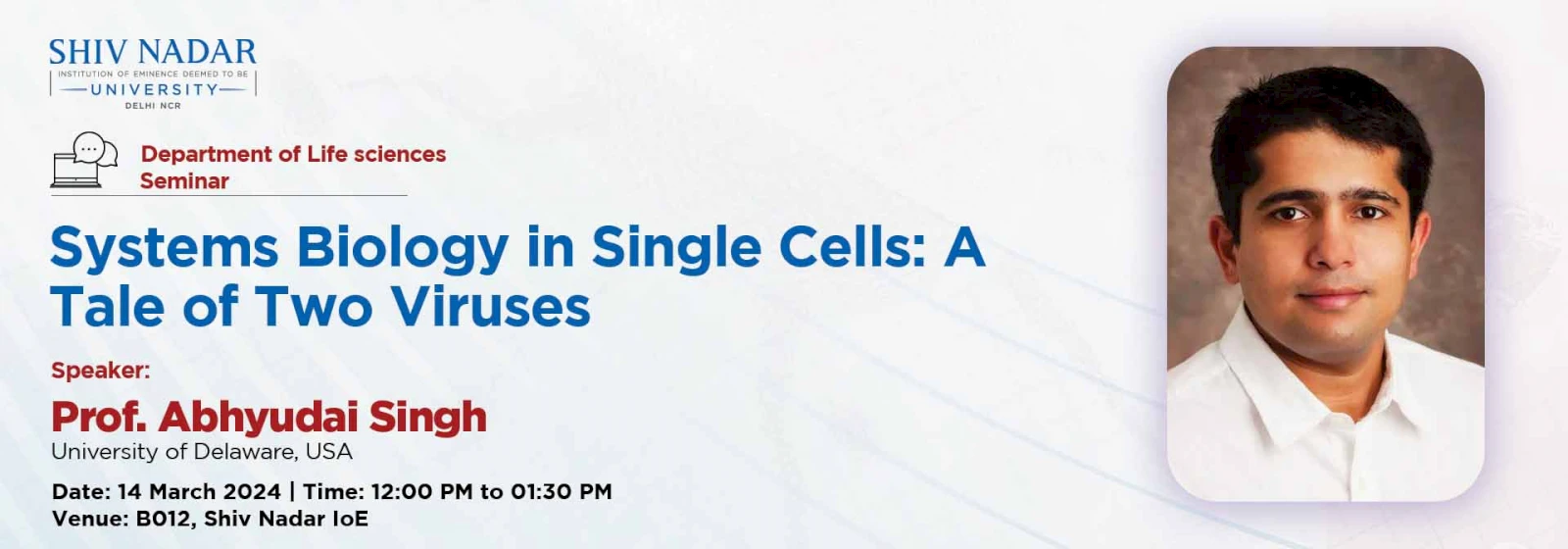Systems Biology in Single Cells: A Tale of Two Viruses
In the noisy cellular environment, the expression of genes is stochastic across organisms ranging from prokaryotic to human cells. Stochastic expression manifests as cell-to-cell variability in the levels of RNAs/proteins, even though cells are genetically identical and are exposed to the same environment. The development of computationally tractable frameworks for modeling stochastic fluctuations in gene product levels is essential to understanding how noise at the cellular level affects biological function and phenotype. I will introduce state-of-the-art computational tools for stochastic modeling, analysis, and inferences of biomolecular circuits. Mathematical methods will be combined with experiments to study the infection dynamics of two viral systems in single cells. First, I will show how stochastic expression of proteins results in intercellular lysis time and viral burst size variations in the bacterial virus, lambda phage. Next, I will describe our efforts in stochastic analysis of the Human Immunodeficiency Virus (HIV) genetic circuitry. Our results show that HIV encodes a noisy promoter and stochastic expression of key viral regulatory proteins can drive HIV into latency, a drug-resistant state of the virus.
About the speaker:
Prof. Abhyudai Singh Singh earned his bachelor’s degree in mechanical engineering from the Indian Institute of Technology in Kanpur, India. He received master's degrees in both mechanical and electrical & computer engineering from Michigan State University and a master’s degree in ecology, evolution and marine biology from the University of California Santa Barbara (UCSB). After earning his doctoral degree in electrical & computer engineering in 2008, also from UCSB, he completed postdoctoral work in UC San Diego’s Department of Chemistry and Biochemistry. From 2011 to 2017 he was an Assistant Professor in the Departments of Electrical & Computer Engineering, Biomedical Engineering, and Mathematical Sciences at the University of Delaware, and was promoted to Full Professor in 2021. His research interests are in modeling and inference of biomedical systems with applications to systems biology, virology, medicine, and neuroscience.
Looking forward to your participation.

Share this: